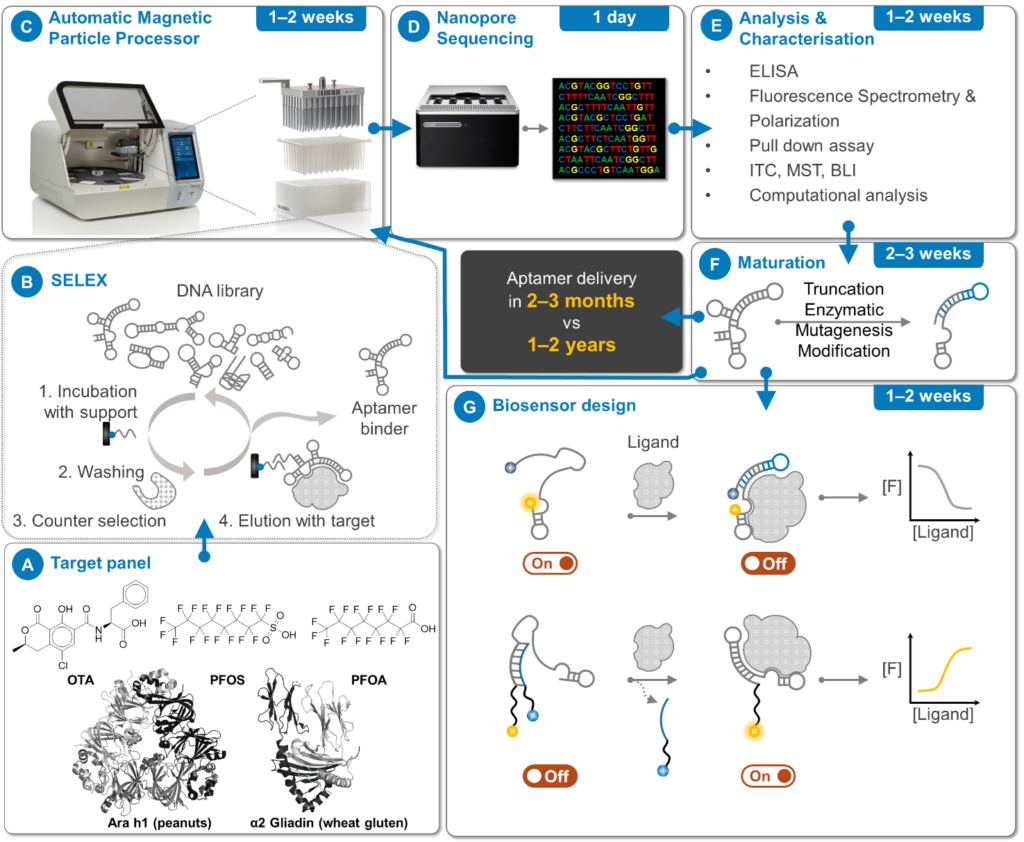This project develops innovative aptamer-based biosensors for the rapid detection of food toxins and allergens, enhancing food safety and reducing waste. These portable diagnostics will revolutionise quality control in the food and beverage industry, aligning with the Centre’s mission to empower sustainable agriculture and protect consumers from contamination and allergen exposure.
Food safety is a critical global issue due to rising risks from foodborne contaminants, toxins, and allergens. Each year, foodborne illnesses affect 600 million people, resulting in 420,000 deaths, while food allergies impact 2–4% of adults and 6–8% of children globally. In Australia, the food industry, particularly in remote areas, faces unique challenges from contamination risks and extreme weather conditions. Current detection methods like liquid chromatography and mass spectrometry, though accurate, are expensive, time-consuming, and unsuitable for real-time, on-site monitoring.
This project addresses this gap by developing aptamer-based biosensors, or aptasensors, for rapid detection of food contaminants, toxins and allergens. Aptamers, synthetic oligonucleotides, bind with high specificity to proteins and small molecules like allergens and toxins, providing a transformative alternative to antibodies. Unlike antibodies, aptamers are cost-effective, stable, and versatile, making them ideal for portable diagnostics.
The process of isolating aptamers in vitro, known as the Systematic Evolution of Ligands by Exponential Enrichment (SELEX), has traditionally been a time-consuming procedure. We introduce SMART-SELEX (Selection of Multiple Aptamer through Real-Time Sequencing), integrating Oxford Nanopore Sequencing Technology (ONT) into the SELEX process. This innovative approach reduces aptamer development time from months to weeks and prevents valuable data lost by enabling real-time, high-resolution data analysis.
The SMART-SELEX technology offers unprecedented insights into consensus motifs and structural elements of aptamers required for biosensor construction. The project will generate significant bioinformatics data, enabling future in silico aptamer design and machine learning integration. The developed aptamers will be integrated into biosensors for detecting critical food toxins and allergens, enabling rapid, on-site diagnostics that can revolutionise food safety protocols.
Project team
- Micaela Belen Sequeira
Project funding
